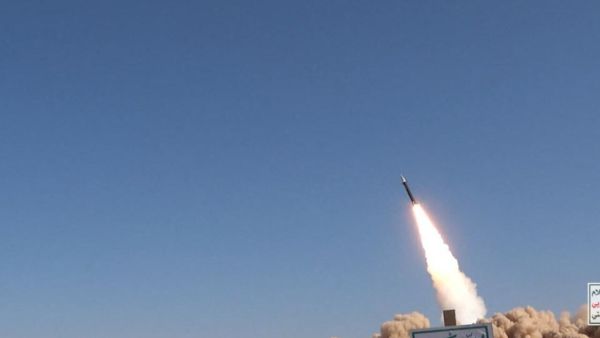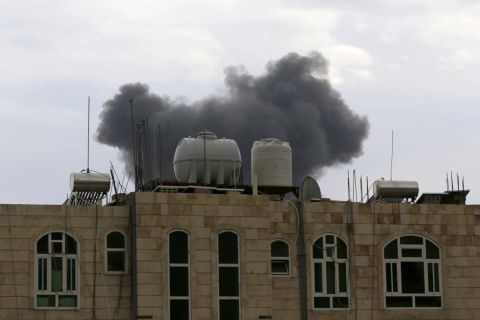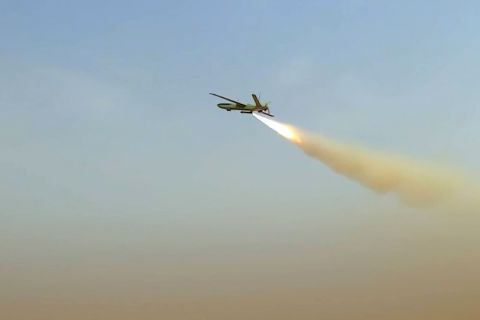ALBAWABA- Yemen’s Houthi movement retaliated against Israel on Thursday with a barrage of drones and a hypersonic ballistic missile, hours after Israeli airstrikes killed at least 35 people and wounded more than 100 in Houthi-controlled areas.
Houthi military spokesperson General Yahya Saree announced that the Yemeni armed forces carried out two operations: the first targeted an Israeli military site in the occupied Negev with a Palestine-2 hypersonic missile, while the second struck Ramon Airport and another military position in the Negev with three drones.
The Israeli military said it intercepted a missile launched from Yemen early Thursday and reported another drone heading toward the border between Israel and Egypt.
Wednesday’s Israeli air raids devastated central Sana’a, hitting Al-Tahrir Square, a busy district with markets and bus stops.
The Houthi-run health ministry said civilians, including journalists, were among the dead and injured.
Saree rejected Israeli claims that its strikes targeted missile launch sites, insisting instead that “civilian properties, including the headquarters of newspapers 26 September and Al-Yemen, were destroyed, with martyrs and wounded among journalists, women, and passersby.”
The Israeli army countered that its strikes hit military targets in Sana’a and al-Jawf province, including what it described as the Houthis’ “military public relations headquarters,” in response to ongoing missile and drone attacks on Israel.
Meanwhile, Washington escalated its financial campaign against the Iran-aligned group. The U.S. Treasury Department announced its largest-ever sanctions package against Ansarallah, targeting 32 individuals, entities, and four vessels linked to Houthi fundraising, smuggling, and weapons procurement networks spanning Yemen, China, the UAE, and the Marshall Islands.
“The Houthis continue to threaten U.S. personnel and assets in the Red Sea, attack our allies in the region, and undermine international maritime security in coordination with the Iranian regime,” said John K. Hurley, Under Secretary for Terrorism and Financial Intelligence.
He stressed that the networks targeted finance advanced missile and drone components used in attacks against U.S. forces, regional allies, and global shipping.











